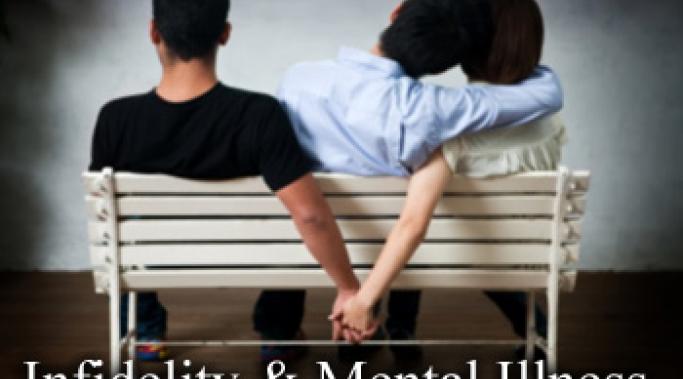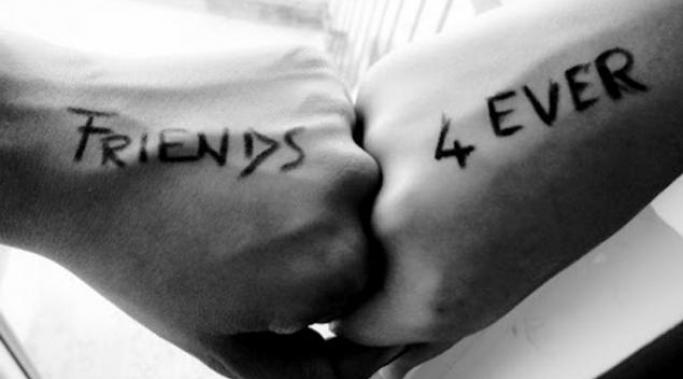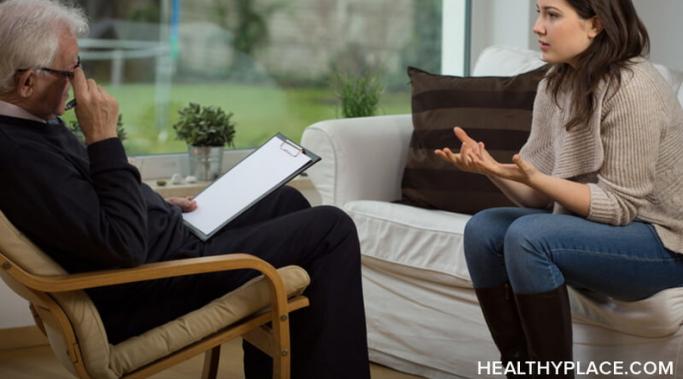When there's infidelity and mental illness in a romantic relationship, it causes pain for both parties which is often irreparable. When infidelity and a mental illness collide, the fallout can cause the most harm to the person dealing with the disease. Whether one does the cheating or is cheated upon, managing the emotional damage of infidelity in a romantic relationship can be enough to cause or worsen a mental illness episode.
Mental Illness Impact on Self
Mental illness stigma is probably most troubling within romantic relationships, because we believe that our partners should understand and support us more than anyone else in our lives. Many of us have likely experienced some form of mental illness stigma, be it from people that we know or from strangers who make assumptions about us based on our illness. There is more than one way that mental illness stigma affects romantic relationships.
Having friends with mental illness can be good for your recovery. However, when you have a mental illness it can be hard to choose the right friends to involve in your mental illness recovery. One way to choose a good person is to seek out friends who also have mental illness to help you through your recovery. Having a friend who understands about living with your disease can coach you through difficult times as well as provide company through the good times.
Creating a healthy patient-therapist relationship is critical to managing your recovery and wellness. If the patient-therapist relationship is healthy, a patient will feel comfortable sharing her thoughts and accepting advice. If it is lacking, a patient can feel alone and misunderstood, at best, mistreated, at worst. There are, however, ways to make sure your patient-therapist relationship is as healthy as possible.
I've written a lot about myself and my relationships on this blog, but now I'm turning to the tumultuous relationship of a public figure for my inspiration. Last week, we lost an icon, the incandescent Whitney Houston. Now, in her demise, the talk turns to her drug addictions and her relationship with ex-husband Bobby Brown.
In 1972, a kids program called "The Most Important Person" gave 3-minute self-esteem lessons about respecting yourself, learning from mistakes, and protecting yourself in the face of various meanies. The theme song began with the following lyric:
The most important person in the whole wide world is you and you hardly even know you.
Almost 40 years after hearing that song for the first time, I often find myself repeating the lyric in my head. Wouldn't it be great if that program was redone for adults? What if someone made a "love yourself" cartoon for people with bipolar?
Lots of people take the last week of the year to reflect on the past and to look ahead to a new year where things are going to be different, dammit. Those of you who have bipolar depression with a soupcon of borderline personality disorder – like me – might even spend a day alone fixating on what they did wrong this year. And, if you’re anything like me, relationships probably take up the majority of your obsession time.
I hate Christmas. There I said it.
I don't hate the holiday - I'm a Christian and I believe in Jesus, Mary, the whole shebang. What I hate is enforced happiness and gift giving that's associated with Christmas, especially when I'm depressed and I don't feel like I have anything to be happy about. And when I'm miserable, the last thing I want is a bunch of people - especially my family - telling me to cheer up.
In my last video post, Emotion Regulation and Dating with Bipolar Disorder, I talked about what I thought was a burgeoning relationship or something with Erik. Well, that something has become a nothing and I'm crushed. Not because I was in love with him or anything, but because in spite of my new-found emotional health I ended up where I've generally been: alone.
Since my bipolar diagnosis, I’ve spent a lot of time worrying about romantic relationships: how to find one, how to act right when I'm in one, how to pick the right one. I've dedicated tons of blog air time to dating and to family because those relationships are my triggers. But I've neglected to address a very important person in many of our lives, an important relationship for people with mental illness: the therapeutic relationship.








